Are you feeling overwhelmed by rising health insurance premiums? You're not aloneâmany individuals and families are searching for ways to cut costs without sacrificing essential coverage. In this article, we'll explore effective strategies to help reduce your health insurance premiums and ease financial pressure. So, let's dive in and discover how you can reclaim control over your health insurance expenses!

Personal and policy information
Health insurance premiums can present a significant financial burden for many individuals and families. Policyholders may seek premium reductions for various reasons, including changes in personal circumstances such as income adjustments, increased health conditions, or a shift in employer-sponsored insurance offerings. Specific personal information, such as date of birth, address, and social security number, alongside policy details like policy number, insurer name, and coverage type, need to be included for processing requests effectively. Moreover, attaching supporting documents, such as proof of income or medical expenses, can enhance the likelihood of receiving a favorable outcome for premium adjustments. Engaging in this dialogue can lead to more manageable healthcare costs while maintaining necessary coverage.
Financial hardship explanation
Submitting a request for health insurance premium reduction can provide much-needed relief during financial hardship. Many individuals face circumstances such as job loss or unexpected medical expenses, which can significantly strain their budgets. For instance, an individual may have experienced a 50% decrease in income due to layoffs in early 2023, making it increasingly challenging to afford monthly premiums. Consequently, reaching out to the insurance provider, such as Blue Cross Blue Shield, armed with detailed accounts of financial struggles becomes crucial. Including pertinent documentation, such as tax returns or proof of recent income changes, aids in substantiating the request. Additionally, highlighting any ongoing medical needs can further emphasize the importance of maintaining coverage while seeking financial assistance.
Supporting documents
To secure a health insurance premium reduction, individuals must gather and submit specific supporting documents to their insurance provider. Essential documents typically include proof of income, such as recent pay stubs or tax returns, demonstrating financial need. Additionally, documents verifying employment status may be required, like a letter from an employer or an employment contract. Health-related documentation, including records of any chronic conditions or medical expenses, can also support the request for a premium reduction, showcasing the impact of healthcare costs on the individual's finances. Furthermore, completed application forms for premium adjustments should be included, along with a cover letter outlining the reasoning for the request and any relevant policy numbers related to the insurance coverage.
Specific premium reduction request
Health insurance premiums can significantly impact monthly budgets, prompting policyholders to seek reductions. Policyholders may request a specific premium reduction, citing factors such as changes in personal circumstances, income levels, or enhanced health initiatives they have undertaken. For instance, individuals who have lost employment or faced financial hardship may demonstrate eligibility for financial assistance programs. Furthermore, engaging in preventive health measures like regular fitness activities or wellness screenings may strengthen the argument for a premium reduction. It is essential for policyholders to review their health insurance provider's policies on premium adjustments, eligibility criteria for discounts, and necessary documentation to submit a formal request effectively.
Contact information for follow-up
Health insurance premium reductions can significantly alleviate financial pressure for policyholders. Notably, many health insurance providers consider factors such as income level, policy duration, and claims history when evaluating premium adjustments. For instance, a policyholder earning below the federal poverty level (approximately $13,590 for individuals in 2023) may qualify for lower premiums under certain state programs. Additionally, timely submission of documentation such as income verification and existing policy details can expedite the review process. Insurance agents typically recommend a follow-up contact via phone or email within 10 business days to check on the status of the request. Local health departments also offer resources to assist with navigating premium reduction opportunities.
Letter Template For Health Insurance Premium Reduction Samples
Letter template of request for health insurance premium reduction due to financial hardship.
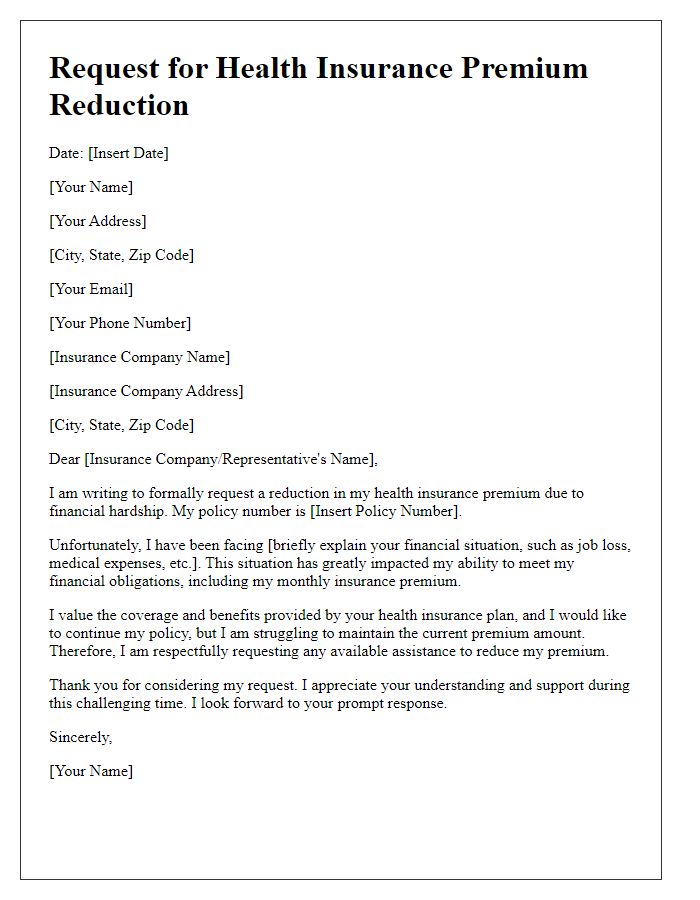
Letter template of appeal for health insurance premium adjustment based on income changes.
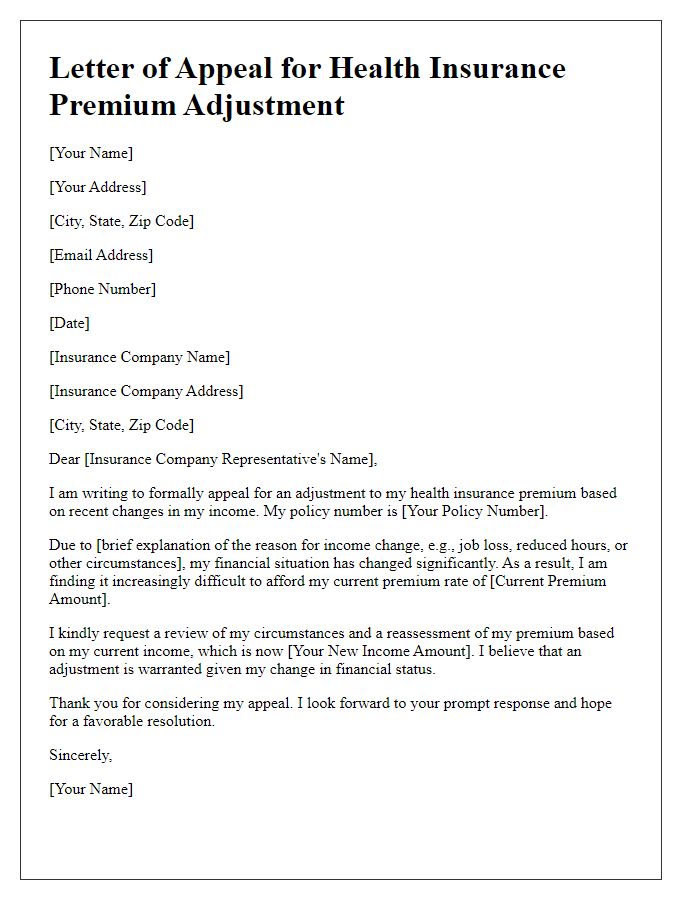
Letter template of inquiry regarding health insurance premium discounts for low-income families.
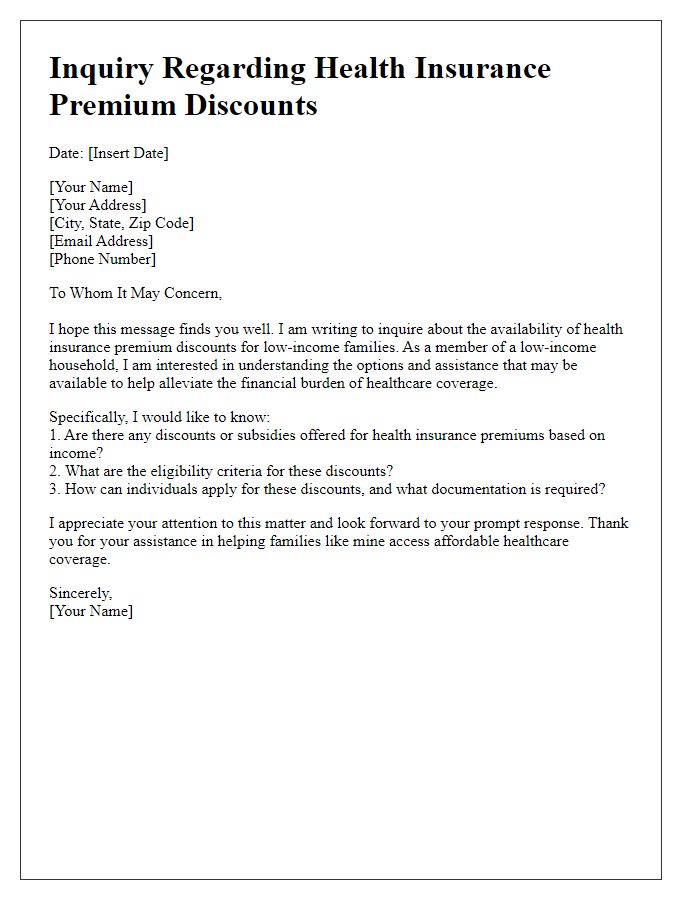
Letter template of application for health insurance premium reduction after job loss.
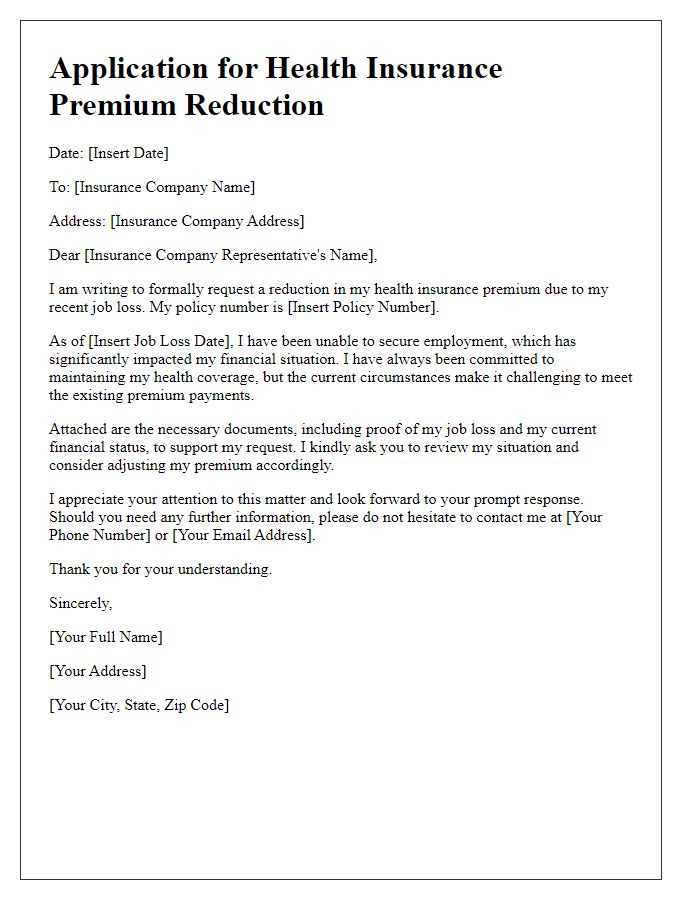
Letter template of notification for health insurance premium review based on recent medical expenses.
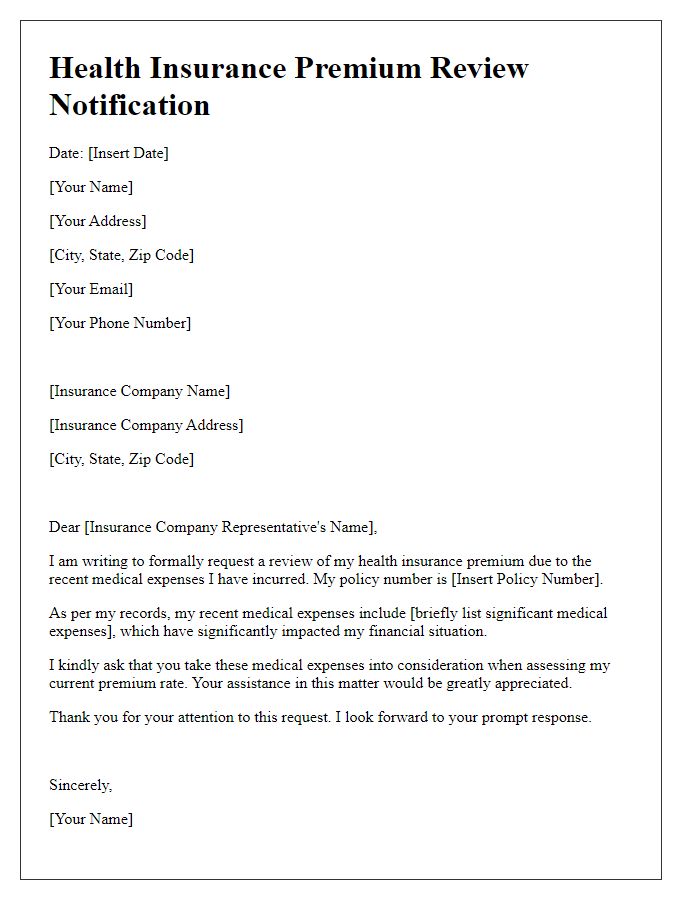
Letter template of request for reconsideration of health insurance premium due to increased expenses.
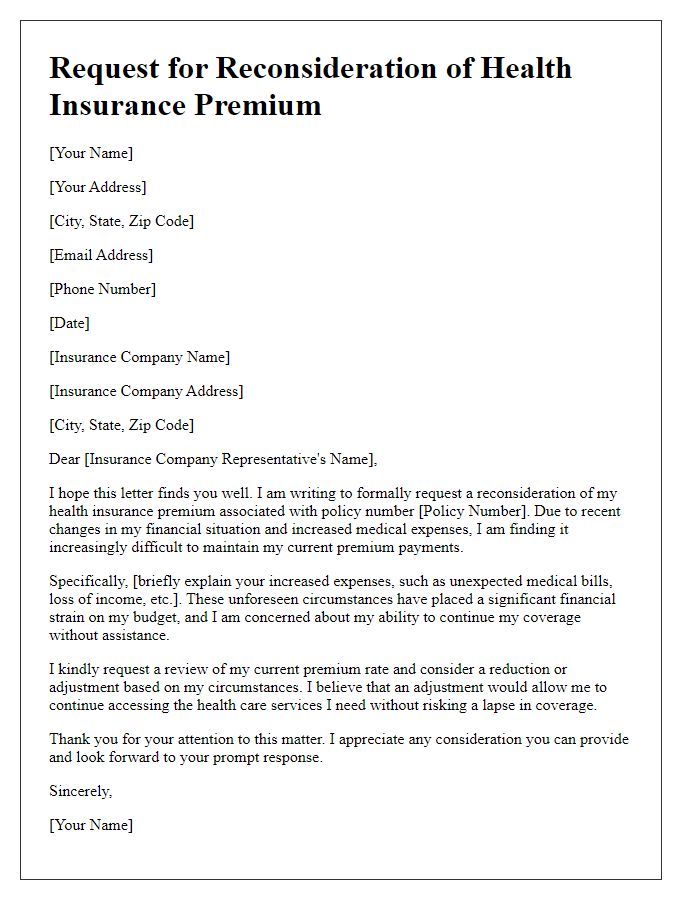
Letter template of petition for health insurance premium reduction for seniors.
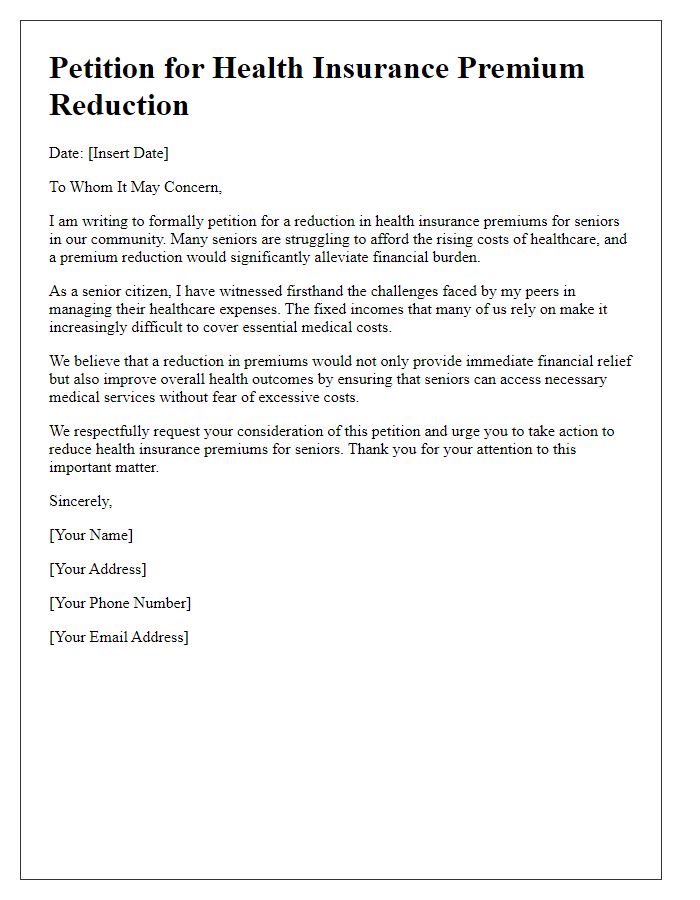
Letter template of formal complaint regarding high health insurance premiums.
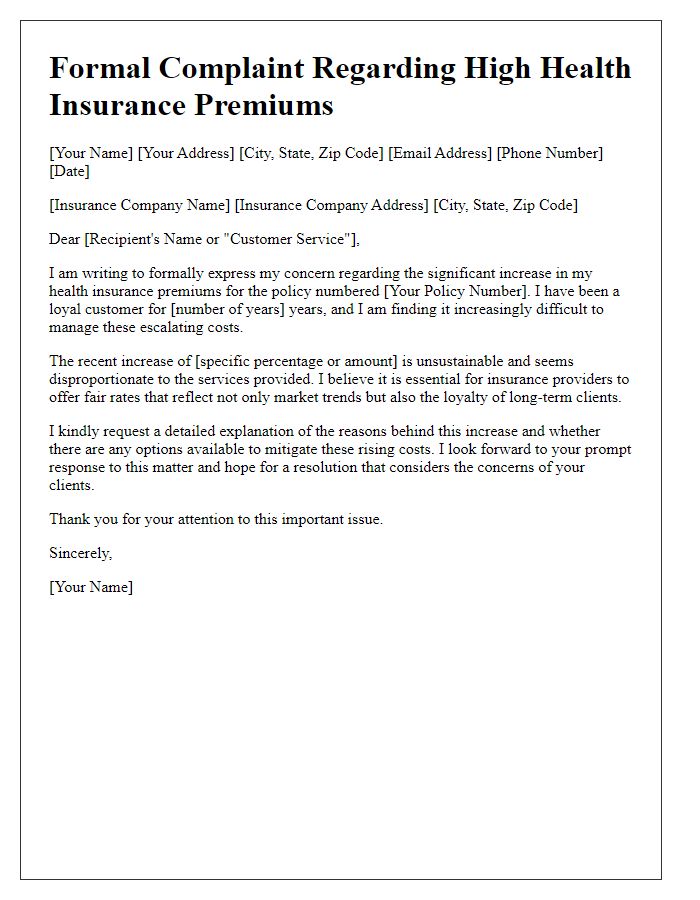
Letter template of inquiry about loyalty discounts for long-term health insurance policyholders.
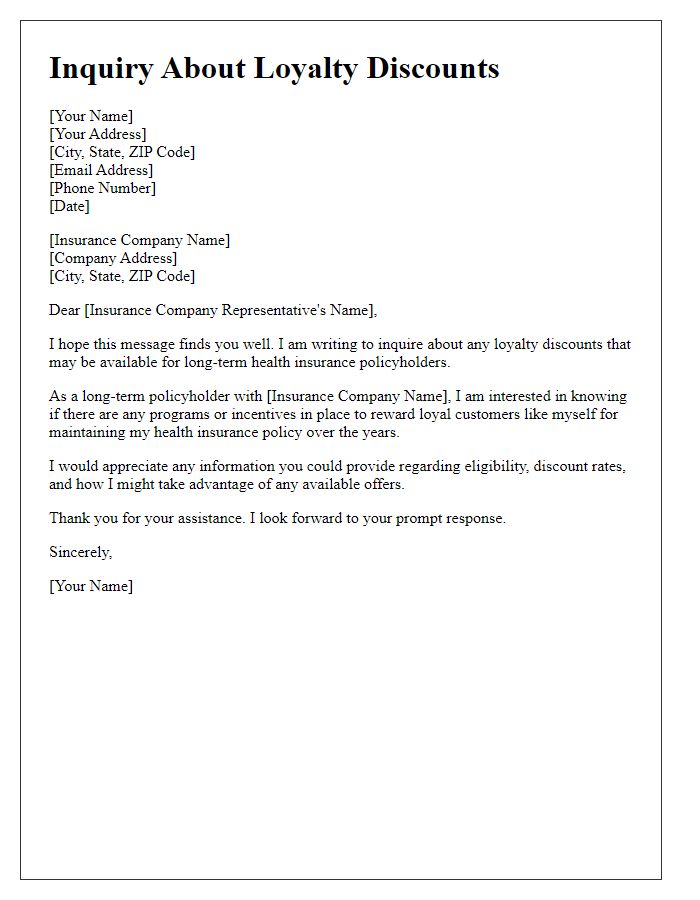

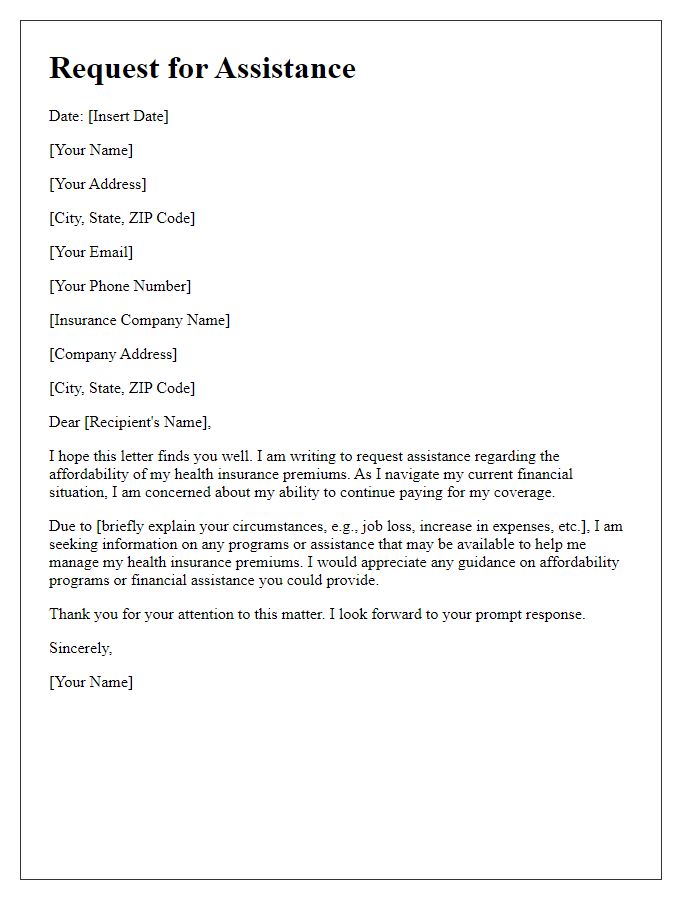


Comments